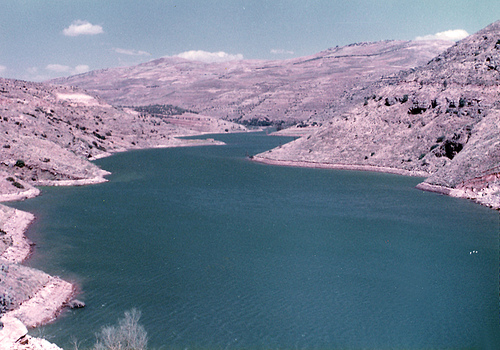Little publicity appears to have been made in Israel regarding a proposed joint project between Jordan and Syria to construct a dam across the Yarmouk River.
The dam, known as the Wihdeh Dam, will be built on that part of the Yarmouk that is shared by the two countries before it reaches an area now under Israeli sovereignty.
One of the Jordan river’s main tributaries, the Yarmouk’s waters are shared by Syria and Jordan for a 40 km stretch which is also part of the boundary between the two countries, before it reaches the part of Golan Heights which is now under Israeli sovereignty where it then forms the boundary between Israel and Jordan. It is a tributary of the Jordan River.
The river at present provides Jordan with an annual water supply of 135,000 cm. Upon completion, a reservoir created by damming the river will result in a storage capacity of 220,000 cm.
The project was originally planned back in the spring of 1999 and is said to have connection with the 1994 peace agreement with Israel, when Jordan was allotted an annual amount of water as part of the peace agreement between the two countries.
It has been refuted by the Jordanian government that Israel objects to this plan, which will curtail the Yarmuk’s flow and deprive Israel of much of the Yarmuk’s flow. Due to reported violations by Syria of their using a part of the Yarmouk’s flow to water crops planted on the riverbank on the Syrian side, a study is to made to find out ways to prevent the depletion of waters of the Yarmouk River basin.
Tenders are presently being submitted to companies to carry out the study. A Turkish company was commissioned to build the dam, on which construction was to have begun in 2003. The study to be carried out by Jordan and Syria will entail the use of monitoring stations to measure the amount and quality of water that would enter the dam.
Jordan’s water problem is much more acute than Syria’s and violations by Syrian farmers are a concern for Jordan, which now depends on the Yarmouk for a portion of its total water supplies.
A similar article, in September, 2008 also mentioned discussions between the two countries concerning us of the water by the two countries, and that Syria had then expressed and understanding over Jordan’s acute water needs.




